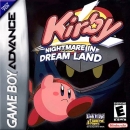Zkuq said:
There's some good points there, but to be able to come to conclusion, I also think an argument needs to also have some numbers to back it up. Sure, physical copies are cheaper to make (at least I would assume - of course Blu-ray discs might be more expensive than CDs). On the other hand, all those new revenue streams might not be enough to cover the losses elsewhere. Or they might be, but we can't know for sure without knowing how much money is spent on creating and marketing new games and how much money is being made from new channels such as season passes and microtransactions. I would assume it all also depends on the game, since some games have no microtransactions whereas some are free and rely completely on them.
That said, I'm quite skeptical about recent talks about increasing the prices because of development costs. I expect new revenue channels to have fixed the situation, and I doubt the new generation is enough to really change that enough to really justify increasing game prices. I think it's possible that game prices are being increased because a new generation is seen as a chance to try to do so - and also because it's probably getting harder to come up with new revenue streams that don't anger the consumers. |
I guess the milk from the new revenue channels isn't enough anymore. We've been getting more and more micro transactions and DLC for 2 generations now, which allowed to keep the game prices the same. Also the increase in digital sales and decline in second hand sales must have added more revenue. However that growth has slowed down, second hand market is pretty much done, while people have gotten used to digital game sharing and waiting for sales.
There is also more choice than ever, or more competition than ever since digital distribution is so much easier, while on the other side the user base isn't really growing anymore. People still expect bigger and better yet that can only go on as long as the user base grows along at the same pace.
Then there is inflation, salaries, although low, still go up. Hardware costs to make games goes up. Office building costs go up. Distribution costs go up, server maintenance costs go up. 'pesky consumer rights' aka returns go up. The same team, in the same building, working for the same amount of time, still costs more nowadays.
However, judging by the reactions in this thread, it could become a downward spiral. More people waiting for sales or switching to game pass, less people paying full price, less revenue, prices go up further.







































































